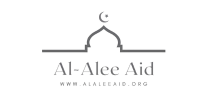Waqf, also spelled as Wakf or Awqaf, is an Islamic concept of endowment, where assets or properties are dedicated for religious, charitable, or community purposes. Here’s all the information related to Waqf in Islam:
- **Meaning and Significance**: Waqf is derived from the Arabic root “waqafa” which means “to stop” or “to hold.” In Islamic law, Waqf refers to the permanent dedication of a property or asset by a benefactor (known as a “waqif”) to be used for specific religious, charitable, or community purposes. Once dedicated, the property or asset becomes inalienable and its benefits are to be used according to the terms set by the waqif.
- **Types of Waqf**: There are various types of Waqf, including:
– **Religious Waqf**: Properties or assets dedicated for religious purposes, such as mosques, madrasas (Islamic schools), shrines, or cemeteries.
– **Charitable Waqf**: Properties or assets dedicated for charitable purposes, such as hospitals, orphanages, shelters, food distribution centers, or educational institutions.
– **Community Waqf**: Properties or assets dedicated for the benefit of the community, such as public parks, roads, bridges, water wells, or public libraries.
- **Benefits and Objectives**: The primary objectives of Waqf in Islam are:
– **Social Welfare**: To provide for the needs of the community, especially the disadvantaged and marginalized.
– **Sustainable Development**: To create long-term sources of income for charitable and community projects.
– **Preservation of Religious and Cultural Heritage**: To maintain and support religious institutions and cultural landmarks.
– **Innovation and Progress**: To foster innovation and progress in various fields, such as education, healthcare, and infrastructure.
- **Legal Framework**: Waqf is governed by Islamic law (Shariah) and may also be subject to local laws and regulations. The establishment and administration of Waqf may vary depending on the legal system and cultural practices of different Muslim-majority countries.
- **Roles and Responsibilities**:
– **Waqif**: The benefactor who dedicates the property or asset for Waqf purposes.
– **Mutawalli**: The trustee or administrator responsible for managing the Waqf property and ensuring that its benefits are utilized according to the terms set by the waqif.
– **Beneficiaries**: The individuals or communities who benefit from the Waqf, such as students, patients, the poor, or the general public.
- **Revival and Modern Applications**: In recent years, there has been a renewed interest in Waqf as a tool for social and economic development in Muslim-majority countries and communities. Waqf assets are being used to support various initiatives, including education, healthcare, poverty alleviation, and infrastructure development.
- **Challenges and Issues**: Despite its potential benefits, Waqf faces challenges such as lack of proper governance and management, legal complexities, insufficient awareness, and limited financial resources. Efforts are being made to address these challenges and promote the effective utilization of Waqf assets for the betterment of society.
Overall, Waqf plays a significant role in Islamic philanthropy and social welfare, embodying the principle of perpetual charity and contributing to the well-being and progress of communities.
